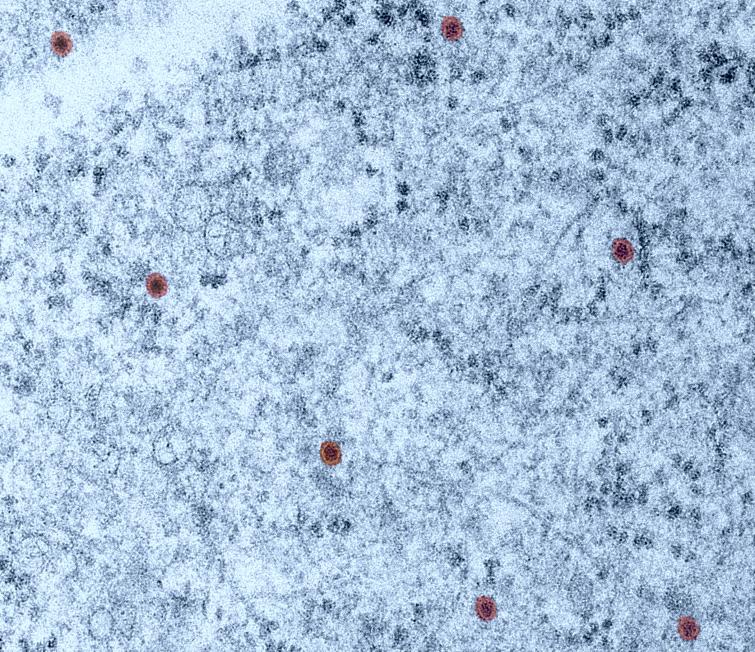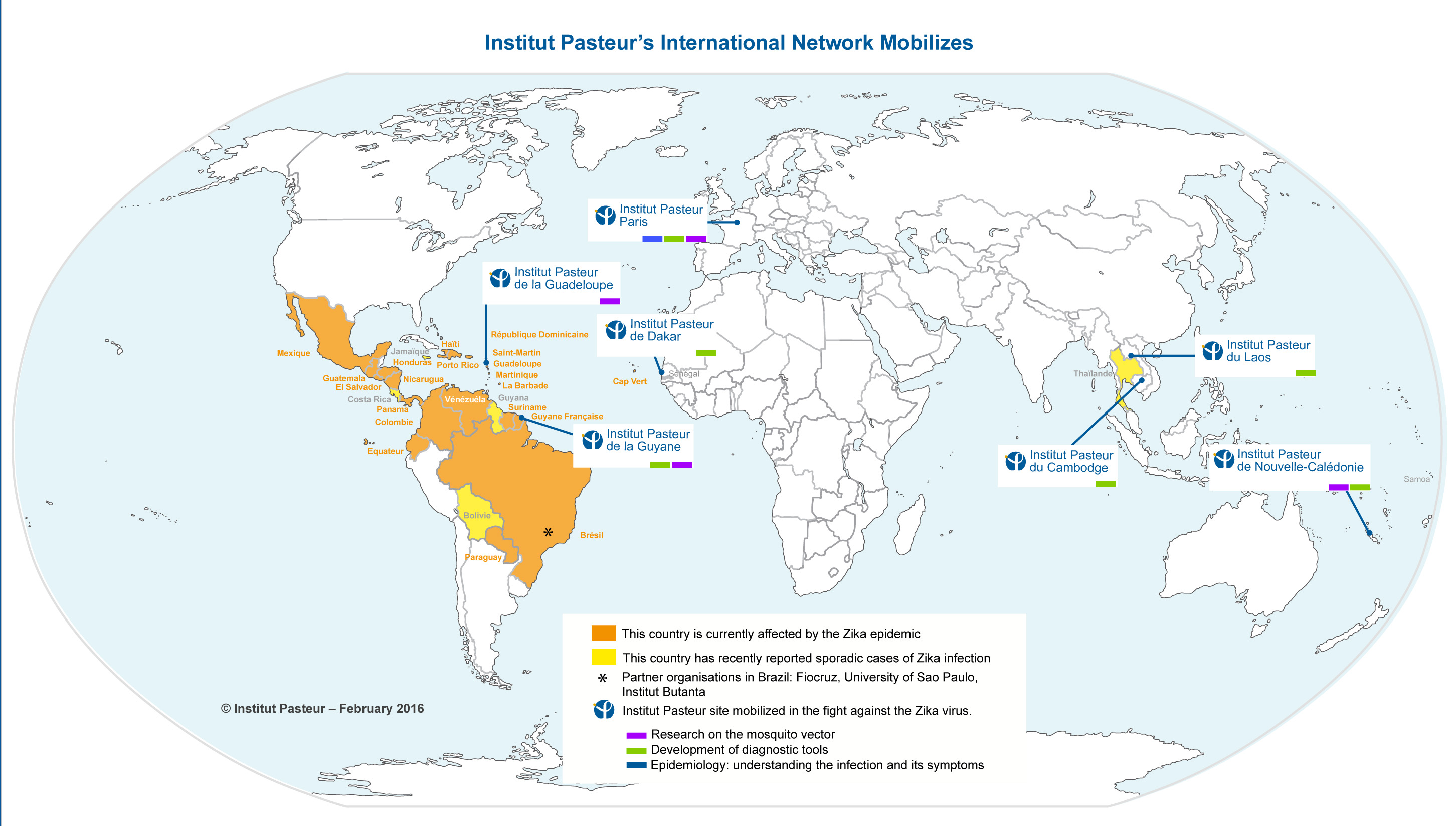
March 04, 2016
Bulletin interne de l'Institut Pasteur


Confirmation of a causal link between the Zika virus and Guillain-Barré Syndrome
Using data collected in French Polynesia, researchers from the Institut Pasteur, the CNAM (Conservatoire national des arts et métiers), the Institut Louis Malardé, the French Polynesia Hospital Centre, and the Public Hospitals of Paris (AP-HP), have shown that infection by the Zika Virus (ZIKV) increases the likelihood of contracting Guillain-Barré Syndrome (GBS), a severe form of limb paralysis that is often accompanied by respiratory impairment. GBS has been observed in countries where the Zika epidemic is prolific. The research has been published on March 1 in The Lancet.
Since it was first isolated in a Ugandan primate in 1947, the Zika virus has managed to remain a mystery to the scientific and medical community. The first known epidemic, on the island of Yap, Micronesia, in 2007, led to the belief that the infection was more or less benign - most infected persons did not develop any symptoms at all, and those who did become ill usually experienced just a few transient days of fever, skin rash, and conjunctivitis.
However, in 2013-2014, a Zika virus epidemic in French Polynesia was accompanied by a noticeable increase in the number of cases of Guillain-Barré Syndrome; a severe form of limb paralysis that is often accompanied by respiratory impairment requiring intensive care. At that time it was not possible to determine a definitive causal link between the Zika virus and the increase in cases of Guillain-Barré Syndrome. More recently, the Zika virus has re-emerged and continues to spread across Latin America, where a number of countries have issued public health alerts around the increase in the number of cases of Guillain-Barré Syndrome in addition to infants born with microcephaly, the latter for which a causal link between via Zika virus infection during pregnancy is still under investigation.
Find out more, read the press release
-
As part of our ongoing efforts to provide as much information as possible, we have produced a map of the institutes in the Institut Pasteur International Network that are involved in the fight against the Zika virus. It indicates the main areas of research (the insect vector, diagnostic tools and epidemiology) in each institute and lists partner organizations in Brazil that are working to combat the virus. It also shows the countries that are affected by the epidemic and those that have reported sporadic cases.
-
A "Frequently Asked Questions" section is also available.

